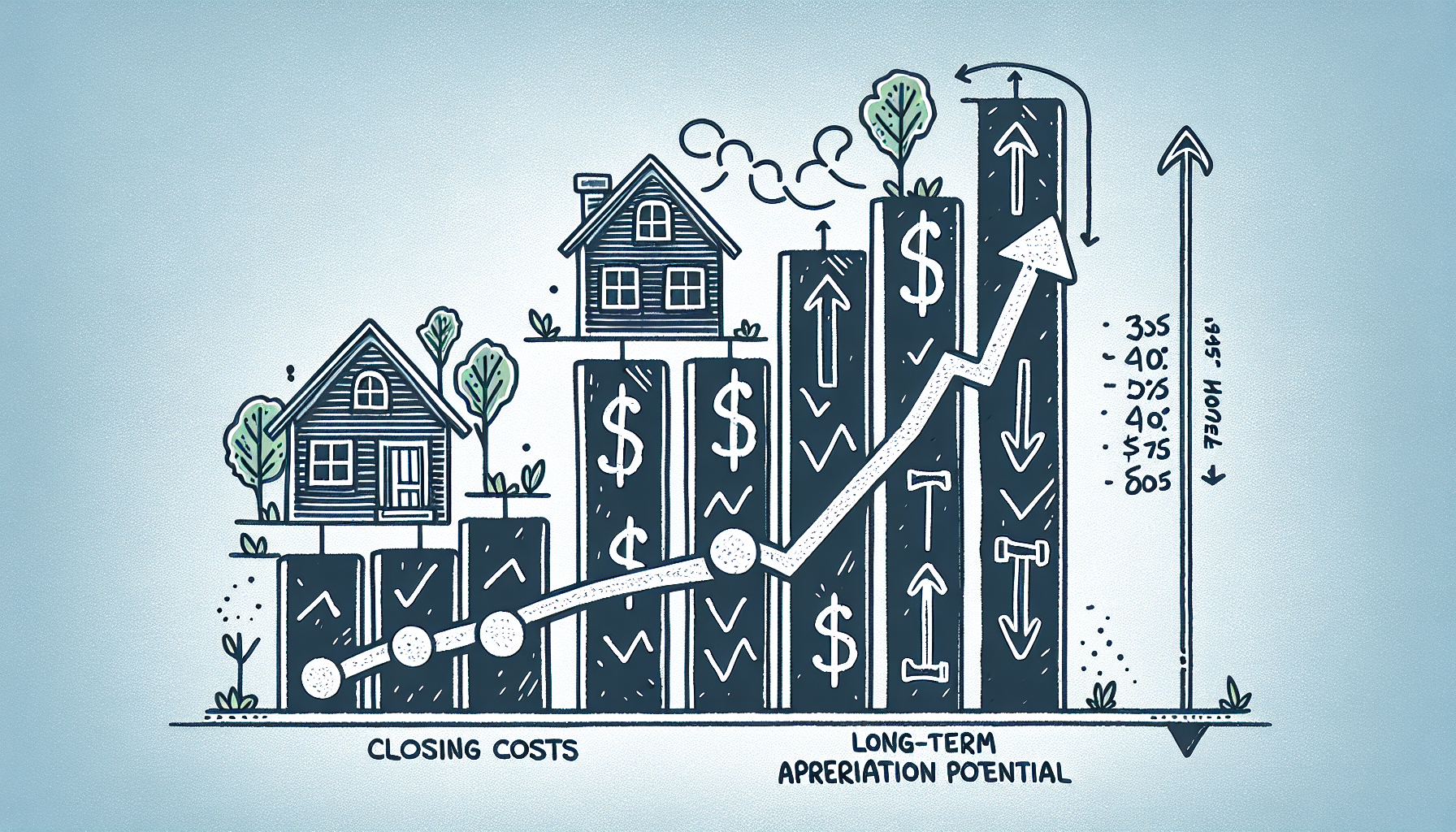Is Buying a New Home Worth It? Weighing the Real Pros and Cons
Is buying a new home worth it? This critical question weighs on many potential buyers’ minds as they consider the significant investment before them. In this article, we cut through the fluff to explore the essential pros and cons of purchasing a new home, scrutinizing everything from energy savings and modern designs to the sting of higher property taxes—all to help you decide if a new home is the right financial and personal fit for you.
Key Takeaways
- Newly constructed homes offer benefits like customization, modern design, and energy efficiency, but may come with higher property taxes and community costs.
- Choosing between a new build and an existing home involves considering the initial investment, potential long-term financial benefits, and the builder’s warranty for new constructions.
- When buying a home, the timeline for moving in varies significantly, and lifestyle preferences play a critical role; a real estate agent’s guidance is invaluable in making an informed decision that aligns with personal needs and financial capabilities.
Evaluating the Value of a Brand New Home
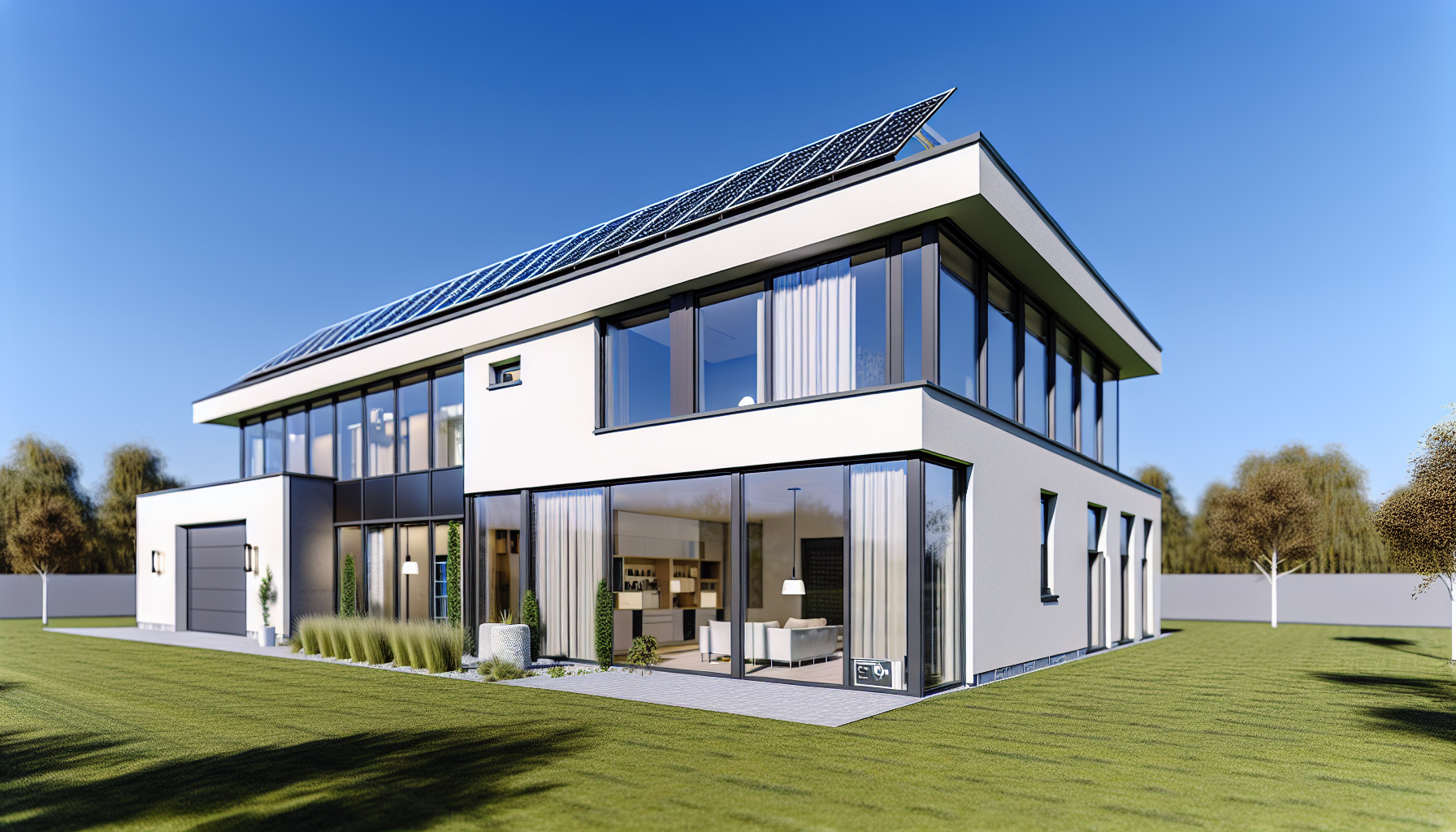
The allure of a brand new home is undeniable. Freshly painted walls, untouched appliances, and often a blank canvas for you to customize to your heart’s content. But beyond the appeal of being the first to live in a home, new constructions offer modern designs, energy efficiency, and potential savings. However, they also come with their own set of considerations such as property taxes and community costs.
The Allure of Customization
There’s a certain charm to designing your own living space. In a newly constructed home, you can choose the number of rooms, the type of flooring, even the color of the kitchen countertops. This level of customization allows you to create a space that truly reflects your personality and caters to your unique needs. Not to mention, these tailored features can significantly boost the future resale value of your home.
However, customization doesn’t come without its challenges. The dizzying array of options can be overwhelming and the cost of certain upgrades can quickly add up. Moreover, while personalized touches can enhance your living experience, over-customization may alienate future buyers. Therefore, striking a balance between personal taste and market preferences is crucial.
Energy Efficiency and Savings
One of the notable advantages of newly constructed homes, also known as new construction homes, is their energy efficiency. State-of-the-art insulation, multi-pane windows, and eco-friendly appliances are standard in these houses. These features not only help in saving the planet but also lead to significant reductions in utility bills.
Moreover, new constructions often come equipped with smart home technology. Programmable HVAC systems and smart thermostats don’t just offer unprecedented convenience and control but also contribute to energy savings. With the stricter energy codes that homes built after 2012 adhere to, your new abode will not only be a comfortable haven but also a friend to your wallet.
Property Taxes and Community Costs
When buying a new construction home, it may appear idyllic, but potential additional costs are worth considering. Property taxes are often higher for new homes due to their increased assessed value. This can be a significant factor to consider when budgeting for your new construction home.
Additionally, living in a brand new community often equates to higher property taxes compared to older neighborhoods. This is due to the cost of establishing new infrastructure and amenities. Although these communities provide a high living standard, it’s necessary to include these expenses in your total budget.
The Financial Implications of Buying New vs. Existing
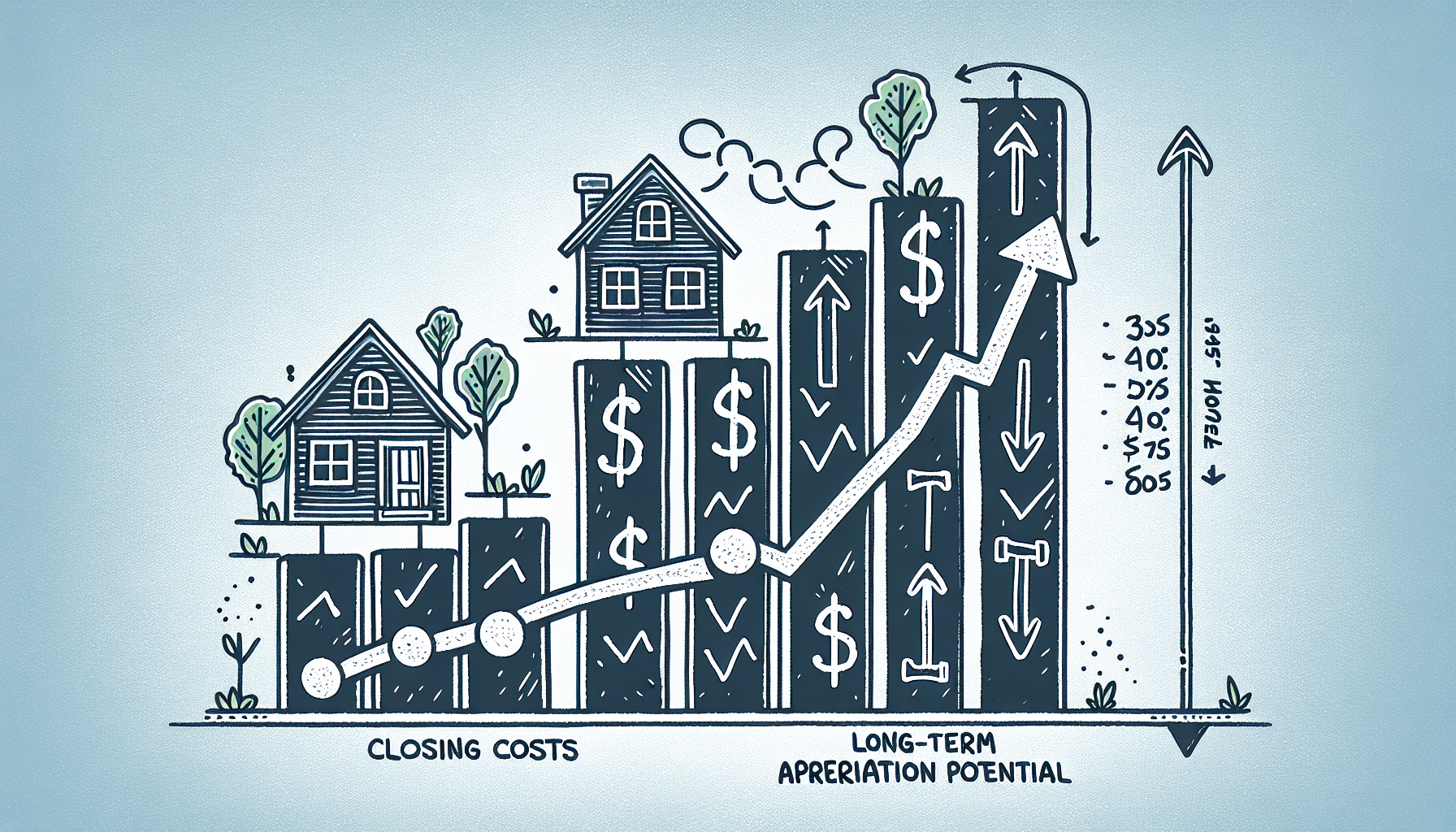
Deciding between a new construction and an existing home involves weighing various financial factors. Some of these factors include:
- The purchase price of the home
- The cost of a construction loan (if applicable)
- Closing expenses
- Potential long-term financial benefits
Considering all of these factors will help you make an informed decision.
Initial Investment and Construction Loans
Building a new home isn’t just about the cost of the land and construction materials. It also involves securing a construction loan. This type of loan typically requires a higher down payment, often around 20%-30%, compared to standard mortgages. This upfront investment can be a significant factor for many homebuyers.
Although the initial investment is higher, a construction loan provides the exclusive chance to conceive and construct your dream abode from scratch. An experienced real estate agent can guide you through the various financing options, ensuring you make an informed decision that aligns with your financial capability and long-term goals.
Long-Term Financial Benefits
Even though the initial expense of a new construction home can be lofty, it’s worth evaluating the possible long-term financial advantages. One significant advantage of new homes is the builder’s warranty. This typically covers certain repairs and maintenance for a period, allowing you to settle into your new home without worrying about unexpected expenses.
Also, newly constructed homes tend to be low maintenance, thanks to modern appliances and systems in new construction homes. Budgeting for potential costs is vital, yet the initial years in your new home could provide financial relief and an opportunity to save money, ensuring tranquility.
The Timeline of Moving into Your Dream Home
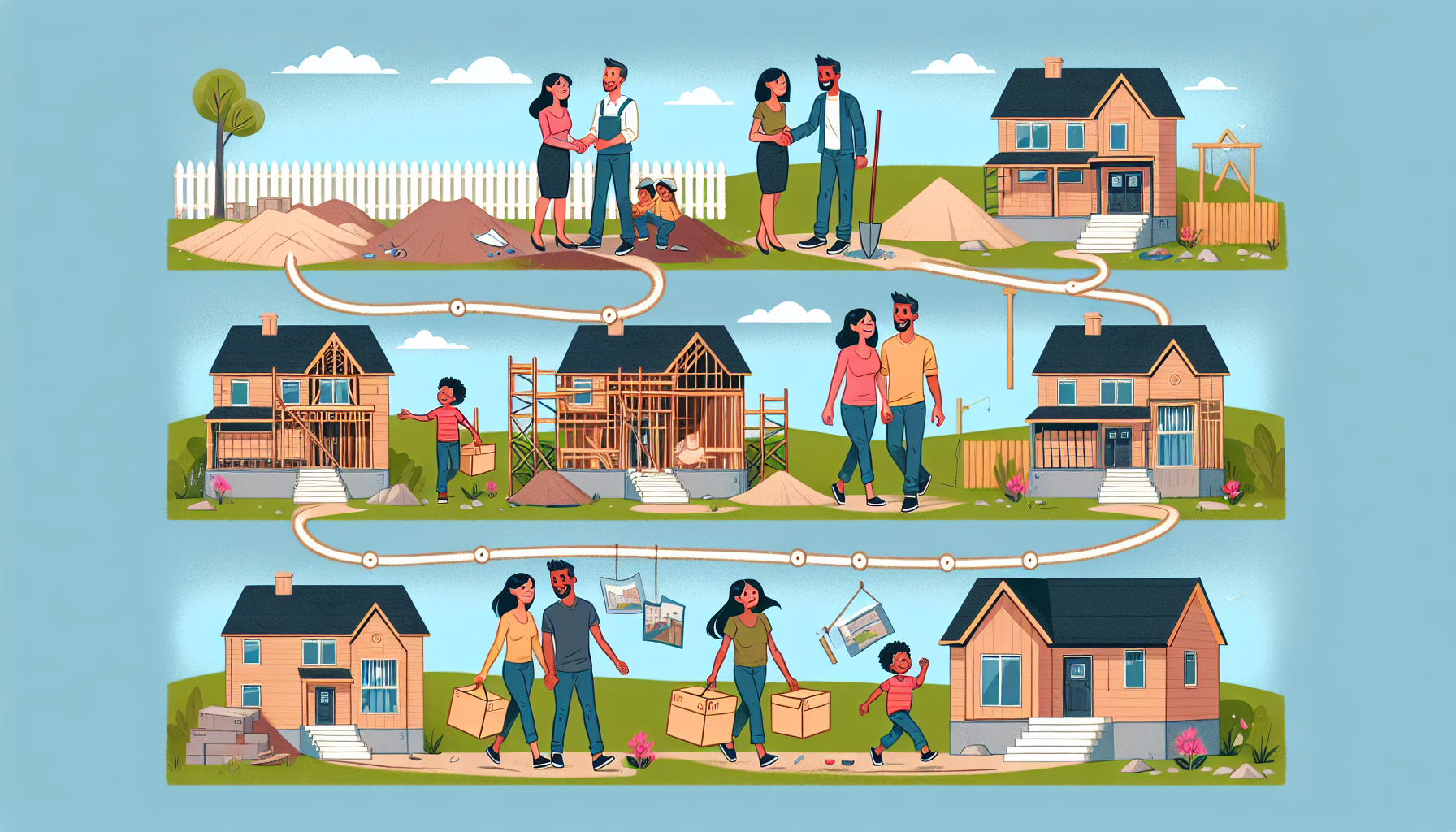
Whether you’re building a new home from scratch or moving into an existing one, the timeline can vary significantly. Factors such as supply chain slowdowns, crew availability, and permitting processes can all influence how soon you can move into your new home.
From Groundbreaking to Move-In Day
The journey from the groundbreaking ceremony to the day you move in is a thrilling yet complex process. On average, it takes about eight months to build a single-family home, but this timeline can extend if you’re opting for a custom design.
Each phase of the construction process comes with its own timeline. Here are the main stages:
- Pre-construction planning
- Land clearing
- Foundation work
- Installation of interior and exterior finishes
It’s important to note that each stage takes time and unexpected issues such as delivery delays or crew availability can cause delays.
While the wait might seem long, remember that building a new home is not just about creating a living space. It’s about crafting your dream home, tailored to your preferences and lifestyle. And isn’t that worth the wait?
The Wait Versus Immediate Gratification
On the flip side, buying an existing home offers the convenience of immediate gratification. Once the sale contract is signed, you can typically move in within 30 to 45 days. There’s something undeniably exciting about the prospect of quickly settling into a new home.
Conversely, awaiting the completion of a new home offers opportunities for customization and the integration of modern attributes. It’s a trade-off between time and the opportunity to shape your living space. In the end, the choice depends on your individual needs, preferences, and timeline.
Lifestyle Considerations in New Construction Homes

Beyond the financial and logistical aspects, lifestyle considerations play a pivotal role in the new versus existing homes debate. New construction neighborhoods often come with resort-style amenities and a social calendar. However, they might also require more landscaping work and carry higher HOA fees.
Embracing a Modern Lifestyle
New construction communities often offer an enhanced living experience. Some of the benefits of living in these neighborhoods include:
- Gyms with fitness classes
- Organized social activities like block parties and community gardens
- Design that fosters a sense of community
- Enhanced lifestyle
Living in such a community also offers myriad opportunities for social interaction. Regular gatherings, neighborhood book clubs, and even simple gestures like sharing holiday gifts can help you establish strong connections with your neighbors and build lasting relationships.
The Challenge of Establishing Roots
The modern lifestyle and amenities of a new community are appealing, yet setting down roots in such neighborhoods can prove challenging. Traditions and connections that are common in older neighborhoods with mature landscaping take time to develop in new communities.
However, active participation in neighborhood activities and a willingness to invest time can help foster a sense of belonging. Some ways to get involved and build a sense of community in your new neighborhood include:
- Organizing block parties
- Celebrating neighborhood-specific events
- Volunteering for local organizations or initiatives
- Attending neighborhood meetings or events
- Joining community groups or clubs
Every small effort contributes to building a unique community identity and helps you establish deep roots in your new neighborhood.
The True Cost of Maintenance and Repairs
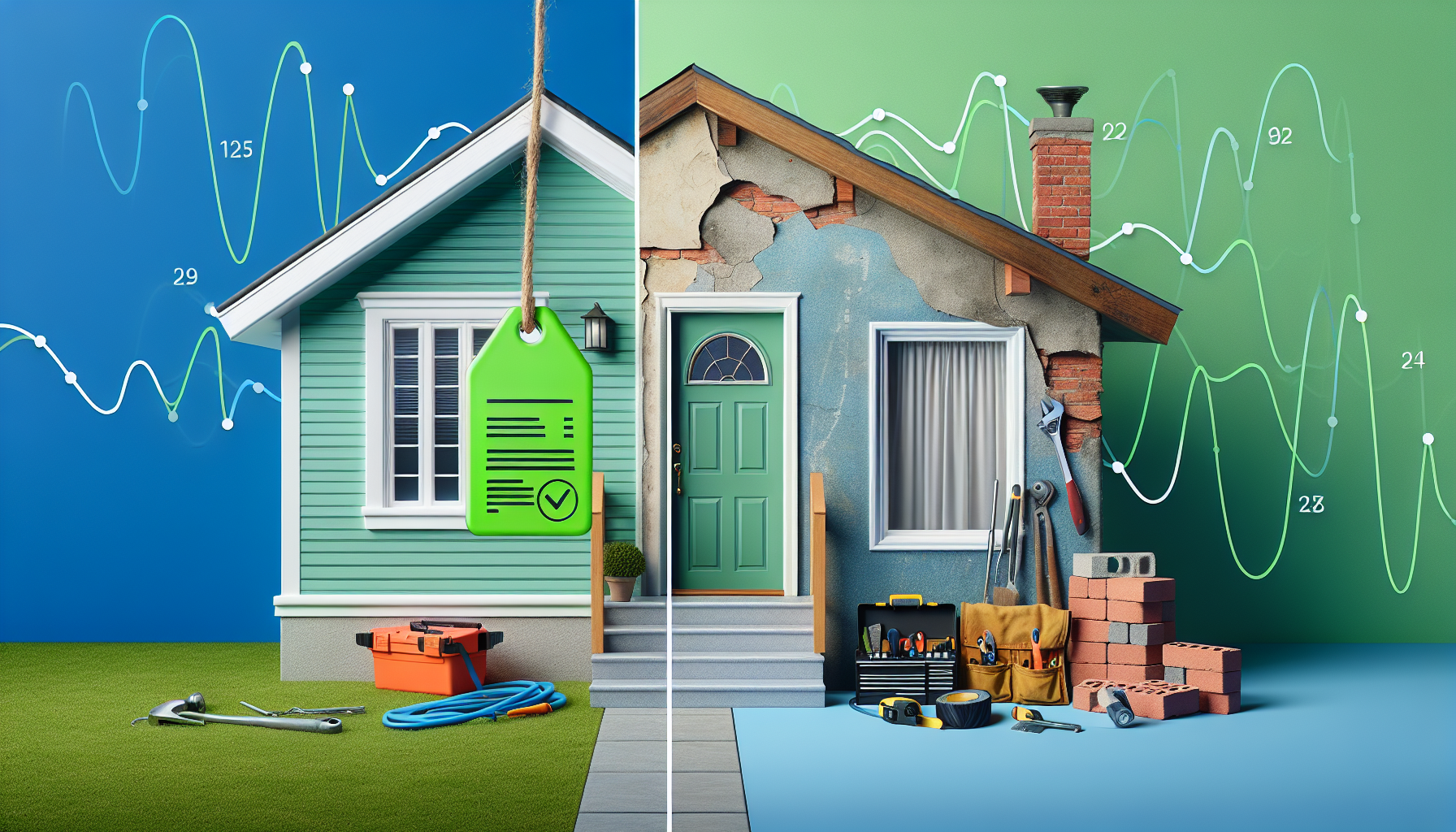
Maintenance and repair costs are another significant factor to consider when deciding between a new and an existing home. New homes, with their modern construction techniques and builder’s warranty, typically require less maintenance in the initial years.
On the other hand, an existing home purchase might come with a lower purchase price compared to the average sales price, but existing homes can potentially involve costly updates and repairs.
Warranty and Builder’s Support
One of the significant advantages of a new construction home is the builder’s warranty. This warranty typically covers workmanship and materials, providing coverage for certain repairs and maintenance for a set period. This can offer peace of mind, especially during the first few years of homeownership.
Warranties offer a safety net, but they’re not everlasting. Once expired, maintenance costs will become a part of your regular budget. However, the modern construction techniques and materials used in new homes typically mean fewer maintenance issues in the initial years.
Anticipating Repairs in Existing Homes
In contrast to new homes, existing homes can come with their own set of challenges. Older homes can harbor issues such as foundation problems, roof deterioration, and outdated systems that might not surface during an initial inspection. These potential repairs can add significantly to the overall cost of the home.
Expecting these repairs and budgeting for them is key when purchasing an existing home. It’s always a good idea to have a thorough inspection done and to set aside a contingency budget for unexpected expenses. After all, the charm of an established neighborhood and a classic home comes with its own price tag.
Making an Informed Decision with a Real Estate Agent
In the journey of home buying, a real estate agent can be your best ally. Their expert guidance can help you navigate the complexities of the process, whether you’re considering a new construction home or an existing one.
The Role of Expert Guidance
An experienced real estate agent can offer priceless insights into the home buying process. They can:
- Advise on the right price point
- Guide you on what to look for during a home tour
- Provide expert opinion to save you time, money, and potential disappointments down the line.
An agent’s role extends beyond just finding a property. They:
- Manage all the paperwork
- Ensure legal documents are correctly filed
- Help mitigate the risks associated with a significant investment like a home purchase
Their guidance can be especially helpful for first-time buyers navigating the intricate process of buying a home.
Matching Your Needs to the Right Property
A real estate agent’s role isn’t solely to guide you through the process, but also to help you find a property that aligns with your needs and lifestyle. They can recommend neighborhoods that align with your lifestyle preferences, ensuring long-term satisfaction with your home.
Whether it’s a new construction home with modern amenities or a charming existing property in an established neighborhood, the right real estate agent can help you find the perfect fit. They are committed to representing your interests, ensuring you secure the best possible home at a competitive price.
Summary
In conclusion, the decision to buy a new construction home or an existing property is a personal one, influenced by various factors including your budget, timeline, lifestyle preferences, and long-term financial goals. Whether you’re drawn to the allure of a brand new home with modern features or charmed by the unique character of an existing home, it’s crucial to make an informed decision. Remember, no matter your choice, a house becomes a home not because of its age or features, but because of the life you live in it. Let’s find your perfect home, together.
Frequently Asked Questions
Is it a good idea to build a new home?
Building a new home can be a good idea in a seller’s market to avoid competition for existing homes, but it’s important to weigh factors like time and cost before making a decision. New homes also offer updated environmental standards and energy-efficient features, avoiding the need for costly renovations commonly found in older homes.
Is buying a house even worth it anymore?
Yes, buying a house can still be worth it as real estate often retains its value better than other investments, especially during periods of high inflation.
What are the advantages of buying a new construction home?
Buying a new construction home offers the ability to customize, benefit from energy efficiency, and save on maintenance costs, thanks to modern construction techniques and a builder’s warranty.
Are there any drawbacks to buying a new construction home?
Yes, new construction homes may have higher property taxes and HOA fees, as well as a longer building timeline compared to existing homes. Keep these factors in mind when considering a new construction home.
What are the potential repair costs in existing homes?
The potential repair costs in existing homes can include foundation problems, roof deterioration, outdated systems, and the presence of hazardous materials, which can significantly add to the overall cost of the home.

